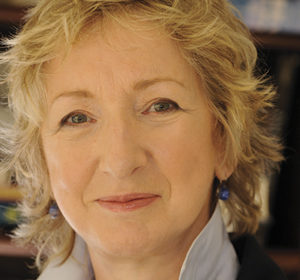“One thing that explains more than anything about me is the fact that I’m Irish.”
~Eugene O’Neill
Is there anything better than cuddling up with a good book? I was fortunate enough to have been brought up without television. Not because my parents were worried about it being a distraction from homework, but because Ireland was a bit behind the times. When we did get the box — I was 12 at the time — it offered one snowy black-and-white channel that only broadcast from 5:30 p.m. to 11:30 p.m.
Much as I loved the American shows that were the staple in those early days of Radio Telefís Eireann Leave It to Beaver was the first television program I ever saw — books were my favorite form of entertainment.
None of the books I read were by Irish authors. At the time Ireland, languishing in what’s been called its post-colonial condition, had little appreciation for its writers. Just as there were no homegrown television shows, there were very few books by Irish authors available.
In my convent school Wordsworth held sway over Yeats — whom I once heard referred to as “Silly Willie.” John McGahern and Edna O’Brien were banned, and there was nary a mention of Shaw, Wilde, Joyce or Beckett.
Times change. Today Ireland, coming into its own artistically as well as economically, is catching some of the world’s enthusiasm for its authors.
The centenary of James Joyce’s “Bloomsday” in June 2005 was cause for much celebration, and as we go to press Dublin readies itself for the 100th anniversary of the birth of Samuel Beckett in April. We do a little early celebrating in this issue with Mark Axelrod’s account of his meeting with the acclaimed author in Paris.
We are also pleased to carry Marilyn Cole Lownes’ interview with John Patrick Shanley, who is surely the most exciting writer in America today. The ever-topical Shanley, who as a young writer received an Academy Award for Moonstruck, is currently working on Defiance, a play on the U.S. military that will open on Broadway at the end of February. His play Doubt, about the crisis in the Catholic Church, won a Pulitzer Prize and several Tony awards. And as we go to press we are happy to learn that The Abbey, Ireland’s national theatre, plans to stage Doubt.
Perhaps it’s an indication that Ireland is finally recognizing that you don’t have to be born on the island of Ireland to be Irish.
Another great Irish-American writer, Eugene O’Neill, never set foot in Ireland, but a good measure of his identity as a person and an artist was defined by his Irishness, as C.F. Canning, writing in this issue, tells us. Those of us in New York who were lucky enough to catch the recent revival of A Touch of the Poet can attest to that. We were fortunate to witness a dynamic performance by Gabriel Byrne as Cornelius Melody in this most Irish of plays.
At the same time that Ireland was banning most of its writers, there was almost a dictatorial emphasis on learning the Irish language.
In our Irish class we read Peig, the autobiography of Blasket Island woman Peig Sayers. Irish is a most beautiful language to listen to, but it is difficult to learn, and our teachers who were not native speakers made a bad job of it. Many years later, when I visited the Blasket Islands as an adult, I more fully appreciated the state’s reasons for wanting to reintroduce the language, and I was glad of the small smattering that I managed to retain.
For if there are any places left that offer a direct connection to the old way of life and the Gaelic tradition, it’s the islands off Ireland. And we offer two features that reflect on that in this issue. Sharon Ní Chonchúir, concerned with the changing face of modern Irish culture, writes about what the future holds for the Great Blasket Island, off the coast of Kerry. Meanwhile Ann Doherty’s photographs document the islands off the coast of Donegal that were once home to her ancestors.
And finally, while Ireland is somewhat lacking in great classical composers, we do have James Galway. I was pleased to do a phone interview with the internationally recognized flute player and interpreter of classical music, who spoke to me from his home in Switzerland. For what better accompaniment is there for a good book than Sir James playing one of Mozart’s concertos for the flute? Well, perhaps one of the several Irish language music CDs reviewed by Ian Worpole.
Mortas Cine — Pride in our heritage. ♦


A very interesting article ?. I wonder if you’ve ever come across my husbands book ? Michael Davitt: Freelance Radical and Frondeur, by Laurence Marley. Have a good day , Rosanna.